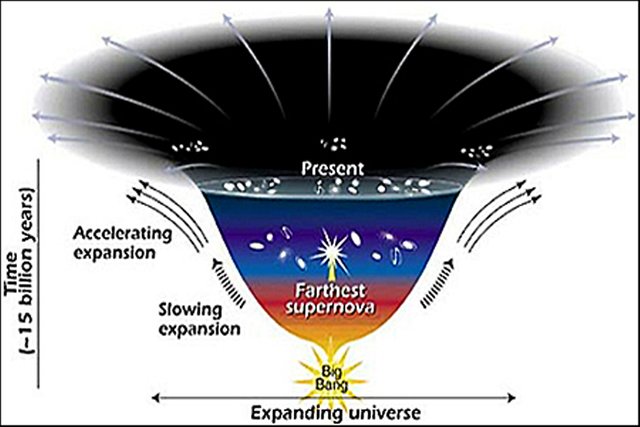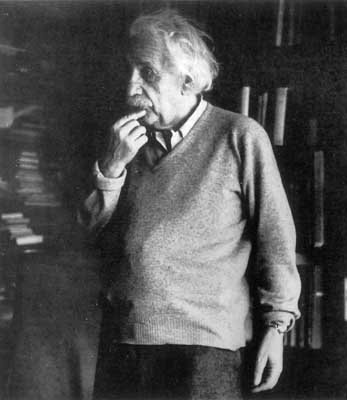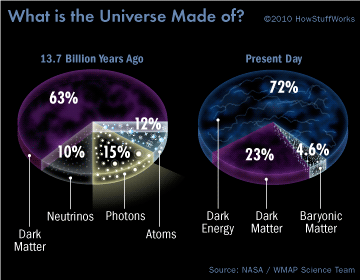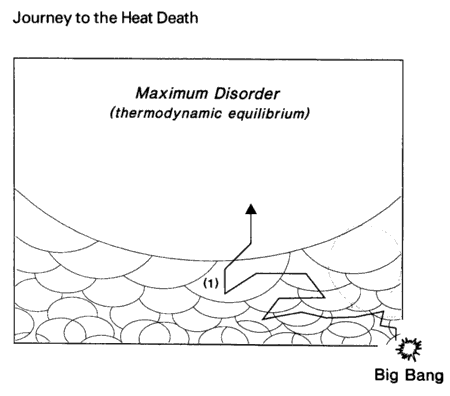
Infinity is an impossible concept for humans to truly wrap their heads around. If I were to ask you; what does infinity mean? The go to answer for most would be when something is never ending, but people rarely begin with that it can also be representative of something which never starts either.
Although maybe strange to hear for some infinity does come in different sizes. Take the series of "real numbers" as in 1,2,3,4... continuing on to infinity. This series of numbers is infinite in size as no matter how large of a number you write down or imagine like 1239483920932093209328042013830129130192103 you could easily just add another digit like a 7 and get 12394839209320932093280420138301291301921037. What defines this particular type of infinity however is that regardless of the fact that it is infinite it is still technically a "countable" infinity. Yes, you may never get to the final number but if you started a 1 and kept counting until infinity you would be able to continue naming real numbers until you either lost interest or died. This may seem somewhat of a redundant case but the contrast is important when we consider infinities that we cannot count at all.
Let's instead now attempt to name every decimal between 0 and 1 as in 0.1, 0.01, 0.001, 0.001, 0.00001...until infinity. I'll ask you guys, what is the first number we write down?
If you already thought about it and answered that there is no way to start this series properly, you're right. Because we are attempting to number every number between 0 and 1 we would have to start with the smallest multiple 1.0x10^-x. For those unfamiliar with scientific notation that's 0.01 with the largest conceivable amount of zeroes in between the decimal point and the 1. So when starting this series our first number would be 0.0000000000000000000000000000000000000000000000000--- well, how many zeroes would be before the 1? The answer is an infinite amount of zeroes go in between this first 0. and 1. This is where we see our example of an "uncountable" infinity. These examples, first demonstrated by Georg Cantor in the late 19th century explained how the set of numbers between 0 and 1 were in fact a larger infinity than that which was derived from the real number set 1,2,3,4....
With number games out of the way, we move on to our universe and it's perplexingly infinite expansion. Many have often heard that our universe is ever expanding, and many have heard scientific blather about dark energies and matter that are abundant in the universe but remain mysterious to even some of the leading physicists due to their ability to avoid detection from human technology.
This is the up to date understanding of what our universe is comprised. As you can see here the universe today is majorly dark energy (althought i've seen varying estimates of its percentage of the overall universe between 68% and 76%), which is believe by physicists to be the driving force for the expansion of our universe, which expands at a rate which is faster than the speed of light despite our understanding of relativity described by Einstein. You may also notice that at the beginning of the universe there was no dark energy to be found, as the universe had yet to expand and at this point was still a singularity of different types of matter.
The reason this comes together with the concept of infinity is because this expansion of the universe is not foreseen to slow down, rather it is constantly accelerating at a rapid pace. This means that on top of the fact that our universe as of this moment is expanding at a speed faster than the most basic information (light) can travel, therefore drawing huge empty gaps in space in which no energy will ever be able to cross and ultimately be lost. It will also hypothetically continue expanding faster until infinity, to the point when the fundamental forces of our universe can no longer hold it matter together. At this point it's hypothesized that the universe would become one vast, infinite sea of thermodynamic equilibrium where no particles would ever be able to collide. This is a fate of the universe coined "Heat Death" and has been conceived since understanding the true implications of the laws of thermodynamics.
The big unknown in this story is still what happens after this heat death occurs. There are many different theories however one intriguing hypothesis is that the universe continually speeds up for trillions of years until it becomes so immensely large and dispersed it begins to slow and then collapses in on itself, somewhat like a black hole and then spews out all of this matter out in a big bang-esque fashion. This spurs a new and expanding universe.
Were this true it raises the question of what the infinite attribute of our universe could entail, as in questioning if the universe itself is just one infinitely looping universal expansion and then impending collapse. Is it fated to have events play out exactly the same every time or do things change slightly with each cycle? Is it possible for things to change enough to prevent the expansion of the universe?
If events are fated to play out the same, have the events in our lives already been played out the same? Have I already typed this post before and you already read it? Have you in a previous universe similar to this one followed me and commented on this post about your opinion on the discussion of infinities and ways in which you believe my content could be better?
It may be impossible for us to ever know for sure, living in mortal bodies, bound by earth and time. Regardless it is still in our freedom to imagine and ask questions, hypothesized based on our understanding of the universe and debate with our peers to see somebody else's view of the universe.
Thanks for reading this post if you bared with the whole thing, appreciate it! Leave a comment about how you picture infinity or what it means to you.
To learn more about our ever expanding universe check out this interesting site I found : http://www.bigbangcentral.com/overview_page.html!



Well, that kind of nonsense and idiocy!
Downvoting a post can decrease pending rewards and make it less visible. Common reasons:
Submit
Sucks to hear you think of it like that. What part do you think is nonsense? I'd like to know so I can understand how to better put across the idea.
Downvoting a post can decrease pending rewards and make it less visible. Common reasons:
Submit
Do not have anything to convey. It shows that you yourself do not understand.
Downvoting a post can decrease pending rewards and make it less visible. Common reasons:
Submit
Sorry late reply, but I don't really believe that's true. The goal of my posts isn't to prove anything or to back up my opinion, I'm really just trying to put information there and have people interpret it the way they want. Not everyone loves math and numbers or wants to know the details of more complex ideas like Banach Tarski paradox which I considered going over and explained to show an example of how infinity can be divided and still yield infinity. I'm just trying to give something light and easy to understand that let's people feel like they can be part of the conversation. I definitely disagree that because I don't convey a point I don't understand the concepts I'm talking about, but I will take that comment into consideration to try and have a more focus opinion while still leaving the subject open ended.
Downvoting a post can decrease pending rewards and make it less visible. Common reasons:
Submit
As a student studying Mathematics, this is what started getting me interested in the infinite, zeros, philosophical paradoxes from ancient times, and studying the complex field and Number Theory.
Downvoting a post can decrease pending rewards and make it less visible. Common reasons:
Submit
Forsure! Some of the coolest stuff to learn about is the insane mathematical and philosophical paradoxes that come from just the concept of an infinity itself. I wish I had taken more math though, I'm a bio student so I still get some in there but I never just get to play around with numbers.
Downvoting a post can decrease pending rewards and make it less visible. Common reasons:
Submit